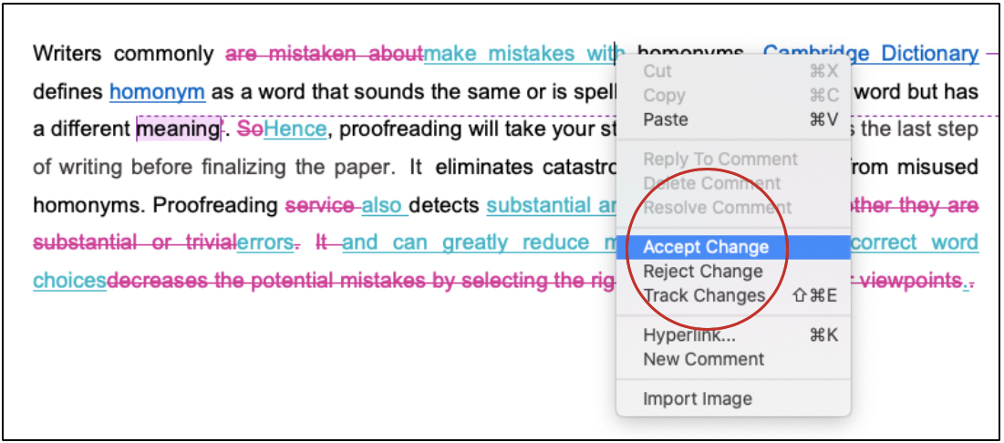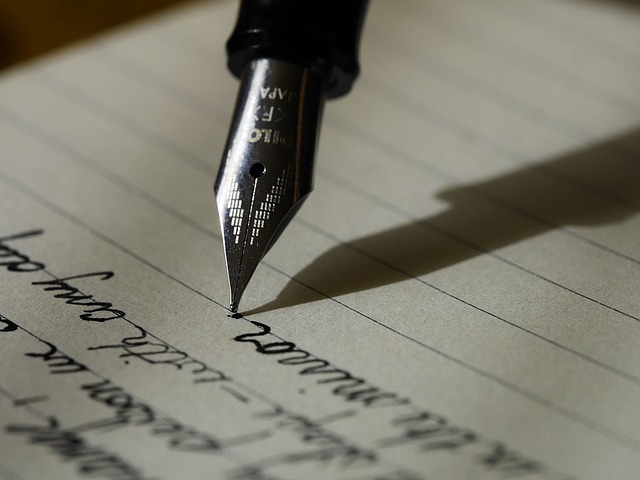A narrative essay is, to an extent, an anomaly in academic writing. Unlike an expository essay, it does not dissuade academic writers from exercising their creative faculties. Nor does it require them to conduct extensive research and be strictly objective in their writing. However, narrative pieces still require academic writers to abide by the fundamental linguistic requirements of academic writing, such as excluding any instances of slang and other “informal” linguistic elements. This article expounds upon the atypical nature of a narrative essay and divulges the steps to write one.

A narrative essay is, to an extent, an anomaly in academic writing. Unlike an expository essay, it does not dissuade academic writers from exercising their creative faculties. Nor does it require them to conduct extensive research and be strictly objective in their writing.
Furthermore, it allows the usage of first-person pronouns “I,” “we,” and “us” throughout its length, which academics consider to be against the statutes of academic writing. All these characteristics work collectively to make it stand apart from “typical” academic essays.
However, narrative pieces still require academic writers to abide by the fundamental linguistic requirements of academic writing, such as excluding any instances of slang and other “informal” linguistic elements. This article expounds upon the atypical nature of a narrative essay and divulges the steps to write one.
A narrative essay is an academic essay through which a writer presents the readers with a narrative. In other terms, it is an essay that offers the readers a story or an account as seen from the writer’s viewpoint. The narratives in such essays can be fictional or non-fictional and include anecdotes, personal experiences, and the ilk. Notes of a Native Son, a collection of ten essays written by an eminent American author, James Baldwin, and published in 1955, is an example of narrative writing. In the essays, Baldwin, by recounting his personal experiences and opinions on diverse subject matters, mulls over the issue of racial prejudice in the then-contemporary US.
Good narrative writing is not just about elucidating an account or a story. It also entails making the readers aware of the underlying morals of a narrative. Thus, academic writers must have a thorough grasp of narrative writing guidelines. Mentioned below are the steps that a writer should heed to write narratively.
Unlike expository or argumentative essays, narrative pieces do not require one to conduct extensive research. However, the narrative that they are planning to construct should have its events proceed chronologically. Thus, instead of sitting down and beginning the writing process sans any preparation, writers should first orderly lay down the details they want to include in the essay.
Like other academic essays, narrative pieces follow the 5-part essay structure. It consists of an introductory paragraph, three body paragraphs, and a synopsis. Before commencing the writing process, writers should first consult with their supervisors or professors to determine whether there are structure-specific requirements for essays. In case there are none, writers can proceed with the aforementioned structure or pick a different essay structure of their choice.
Thesis statements are integral to all academic essays, irrespective of their writing purpose, and narrative pieces are not different. The purpose of a thesis statement is to provide a countenance to an essay by accentuating its central idea and relaying it to the readers. However, a narrative thesis statement deviates from the norm as it does not need to summarize the entire text. Instead, it can either distill the theme of an essay or mention its inherent moral. However, being fundamentally a thesis statement, it still needs to look and read like a typical specimen. This implies that it should entice the readers and direct the flow of the essay during the writing process.
Once all the preparations are done, the next step is to prepare the first draft. Writers should not strive for perfection when preparing the first draft. Instead, they should ensure to include all the relevant details of the narrative, reassess the order of the narrative events, and write a fitting conclusion.
Editing and proofreading are two crucial processes that no writer should skip or undertake casually when writing an essay. Good writing is as much about writing as it is about editing. Editing and proofreading an essay ensures that it is devoid of grammatical, linguistic, contextual, and tonal errors.
One should keep in mind not to edit and proofread during the writing process. Doing so can undermine the overall quality of the manuscript. Also, depending upon the priority of the essay, writers can either edit and proofread themselves or approach professional services.
Writing a narrative essay that weaves a story effectively takes copious amounts of practice. It should have a hook to intrigue the readers. Its body paragraphs should tightly knit together all the narrative events, and its synopsis should bring everything together for the readers to reminisce. Thus, one should devise a practice routine as well as follow this guide to excel at narrative writing.
Best Edit & Proof expert editors and proofreaders focus on offering manuscripts with proper tone, content, and style of academic writing, and also provide an upscale editing and proofreading service for you. If you consider our pieces of advice, you will witness a notable increase in the chance for your research manuscript to be accepted by the publishers. We work together as an academic writing style guide by bestowing subject-area editing and proofreading around several categorized writing styles. With the group of our expert editors, you will always find us all set to help you identify the tone and style that your manuscript needs to get a nod from the publishers.

You can also avail of our assistance if you are looking for editors who can format your manuscript, or just check on the particular styles for the formatting task as per the guidelines provided to you, e.g., APA, MLA, or Chicago/Turabian styles. Best Edit & Proof editors and proofreaders provide all sorts of academic writing help, including editing and proofreading services, using our user-friendly website, and a streamlined ordering process.
Visit our order page if you want our subject-area editors or language experts to work on your manuscript to improve its tone and style and give it a perfect academic tone and style through proper editing and proofreading. The process of submitting a paper is very easy and quick. Click here to find out how it works.
Our pricing is based on the type of service you avail of here, be it editing or proofreading. We charge on the basis of the word count of your manuscript that you submit for editing and proofreading and the turnaround time it takes to get it done. If you want to get an instant price quote for your project, copy and paste your document or enter your word count into our pricing calculator.
Contact us to get support with academic editing and proofreading. We have a 24/7 active live chat mode to offer you direct support along with qualified editors to refine and furbish your manuscript.
Follow us on Twitter, LinkedIn, Facebook, Instagram, and Medium.
For more posts, click here.
This article discusses how to write a narrative essay. To give you an opportunity to practice proofreading, we have left a few spelling, punctuation, or grammatical errors in the text. See if you can spot them! If you spot the errors correctly, you will be entitled to a 10% discount.
How to Determine Variability in a Dataset
14.10.2023
How to Determine Central Tendency
19.02.2023
How to Specify Study Variables in Research Papers?
14.01.2023
Population vs Sample | Sampling Methods for a Dissertation
14.01.2023
How to Ensure the Quality of Academic Writing in a Thesis and Dissertation?
04.12.2022
How to Avoid Anthropomorphism in Your Dissertation?
04.11.2022
How to Write a Research Methodology Section for a Dissertation and Thesis
07.08.2022
How to Write a Theoretical Framework for a Dissertation and Thesis?
05.08.2022
How to Write Literature Review for a Dissertation and Thesis
02.08.2022
How to Write a Dissertation and Thesis Introduction
31.07.2022

The successful manuscript submission can benefit in accelerating quick publication, the promulgation of your findings, and avoiding the chances of scooping. Plus, it provides a quicker return for you to start working on your next study. This article will guide you through 11 tips for successful manuscript submission.
Continue Reading
What is academic writing? In simplest words, academic writing is a style of writing used in the academic field and adopted by academic institutions or scholarly publications. You might encounter academic writing in peer-review journals, books, articles, and you are expected to write your manuscripts, dissertations, essays, or thesis in the academic style. Academics and students use this style to convey complex ideas and theories clearly and precisely to their readers. Therefore, as a student, especially for the ones getting higher education, it is needed for you to learn this way of writing and adopt it.
Continue Reading
Proofreading improves your writing, and it is a highly crucial step for a perfectly written academic paper. It necessitates a broad-ranging comprehension to fix a paper excellently and requires English proficiency to identify and correct errors. When you want to ensure that your paper is error-free in terms of grammar, punctuation, spelling, and formatting, you need a proofreading service.
Continue Reading
Writing a research paper involves scrutinizing a plethora of research material to bring forth plausible conclusions. However, no matter the degree of impeccability and thoroughness of the research, successfully transmuting it into words takes a grave amount of practice and endurance. Thus, it is not uncommon to see amateur and even veteran scholarly writers commit research writing mistakes in their papers now and then. Following the narrative, this article will describe 5 research writing mistakes that frequently blemish the works of academic writers. It will also shed some much-needed light on the tips to amend and avoid these mistakes.
Continue Reading
A literature review includes academic sources on a specific topic. It aims to supply up-to-date knowledge, ensuring that you specify relevant theories, methodologies, and deficiencies in the extant research.
Continue Reading
Formal writing can cover everything from academic essays to a thesis or dissertation; a few fundamental rules are valid in all types of academic writing. A student can find writing in different formats boring or unbearable. With the following tips, you will start finding academic writing almost enjoyable and utterly rewarding.
Continue Reading
While researching a group of people, collecting data from every person in that group is virtually impossible. To counter this issue, you choose a sample. What is the difference between population and sample? What sampling methods should you use in your dissertation?
Continue Reading